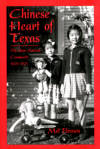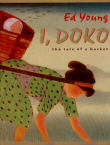|
The AACP Newsletter |
| Asian American Curriculum Project, Inc. - Books for All Ages |
| Since 1970 | AsianAmericanBooks.com | May 2005 |
|
|
|||||||||||
|
Let's Move It An Editorial by Leonard D. Chan |
|
|
Last year we had an editorial (see the June 2004 newsletter) that was critical of Asian Pacific American Heritage Month (APAHM) and to my surprise the biggest negative response came from our past intern Jaime Young. Here are some of the points that Jaime made (Jaime, please excuse my paraphrasing) -
First of all I apologize to anyone in the trenches diligently trying to make APAHM more relevant. We did not mean to belittle your efforts and we do not wish to do away with APAHM. Last year's editorial was meant to incite others to take notice of APAHM, join in, and make it work. This year, with this newsletter, we continue a debate that will hopefully help make APAHM better. Maybe it's just my perception, but I think APAHM may be losing some interest. Our article on the lack of good APAHM TV programming is meant to prove the point that there is a dearth in this area. I'm not sure whether TV programming is a good gauge of the public's interest or whether it is contributor to APAHM's diminishing status. If TV programming is a reflection of the public's interest, then perhaps APAHM does need help. Here is my proposal - let's move African American Heritage Month to January and APAHM to February. Timing is everything and from an educational standpoint, I don't think May is that good of a month for APAHM. If an event or tradition is to be carried on, then you need active participation from the youths in the community. For many school age kids, May is the end or near end of the school term. Do students and educators have time for APAHM when they have finals, graduation, and all of the other concerns that go along with the end of the school year? If APAHM is meant to be an educational event, shouldn't we have the full attention of students and schools? Speaking of which, are the historical reasons for why May was chosen for APAHM significant to the current demographics of the Asian Pacific American community? May was chosen to highlight achievements of the Chinese Transcontinental Railroad workers and the first Japanese immigrant to America. Although I am proud of my ancestors' participation in the building the railroads, perhaps this achievement is not that important to other Asian Pacific American ethnic groups. The settling of the first Japanese immigrants in the US definitely seems to have limited appeal and relatively minor significance – almost every group in American has a similar "first to come" experience. February would be a better month for Asian Pacific Americans for a number of reasons. First of all, February is usually the month in which the Lunar New Year is celebrated. For many different Asian ethnic groups the Lunar New Year's celebration is the biggest cultural event of the year. |
The Lunar New Year sometimes falls in January, but many of the events surrounding this celebration take place after the actual Lunar New Year date. The San Francisco Lunar New Year parade is one of the oldest held ethnic events in the country and usually falls in February. A Lunar New Year parade has even become a tradition in Hawaii. The Lunar New Year is a historical and cultural event that helps to reconnect many Asian Americans with their Asian heritage. There are many schools that spend time in February to learn about the Lunar New Year and Asian American culture. Why not use the Lunar New Year celebration time to also promote Asian Pacific American heritage? February is also the anniversary month of Executive Order 9066, which was the presidential command, that sent many Japanese Americans to internment camps during World War II. Although February 19th is a sad historical date for the Japanese community and all civil liberty loving Americans, this is a date that is commemorated every year with Day of Remembrance events. In a way, the Japanese internment of World War II and the fight to gain reparations aided in the galvanization of the Japanese and Asian American communities, and started the yellow power and Asian American studies movements of the early 1970s. As Jaime had pointed out in her rebuttal to me, the one thing that is being taught in most US schools is the subject of the Japanese American Internment. Why not use this historical anniversary in conjunction with learning about the total Asian Pacific American experience in the United States? Both the Lunar New Year and the Day of Remembrance are events that are unlikely to diminish with time. An interesting side note to this is the Marysville Bok Kai Festival in Northern California. It's an event that takes place approximately one month after the Lunar New Year and brags of having the longest continuously held Chinese parade in America. Two years ago when I went to this event, I discovered that even though the Chinese community had dwindled the non-Chinese members of the community actively helped to carry on the traditions of this event. I saw this as an interesting metaphor for what was great about America – America was not ethnically monolithic and that all of us can learn to celebrate its diversity. Perhaps a vibrant APAHM month in February can further this cause. Okay, here's the hard part - can we get the African American community to agree with this move? I picked January for their new month because the apparent fit with the celebration of Martin Luther King, Jr.'s birthday and the end of Kwanzaa on January 1st, but perhaps my thoughts are faulty and misinformed. Perhaps the African American community really prefers February or may even like to choose another month. There may be many reasons, that I don't know of, for why African American Heritage Month is best in February. As far as I know, January is not being used by any other major groups. Perhaps I am wrong about this. If a pope can arbitrarily change our whole calendar system a few hundred years ago, why should it be so hard for us to make this move? Let me know what you think and maybe we can pass the ideas on to our legislators and other community leaders. Let's carry on this debate every year so that we can make some positive changes for APAHM. I'll try to do my part and I hope you stay with us for part three next year. |
The following books are discounted for subscribers to our newsletter. The discounts on these books end June 7, 2005. | |

|
Chinese Heart of Texas
By Mel Brown |

|
I, Doko
By Ed Young |

|
AloftBy Chang-rae Lee2005, 384 pages, Paperback. This is award winning author Chang-Rae Lee's new book about a middle-aged man and his ethnically mixed Asian American family. The main character ruminates over family history, contemporary culture, and family problems as he regularly escapes into the air in his small plane. In the process he becomes closer to his family as they all struggle to deal with their flaws.
View Additional Information
|

|
Kaleidoscope
Edited by Nancy Hansen-Krening and the National Council of Teachers of English |

|
The Love WifeBy Gish Jen2004, 379 pages, Hardback. Author Gish Jen tells the often-humorous story of an ethnically mixed Asian American family that receives a new addition to the family - a nanny from China. Or wait, is she to become a second wife? Read this book to find out what happens.
View Additional Information
|
Copyright © 2005 by Asian American Curriculum Project, Inc. (a non-profit organization since 1970)
Visit our website at AsianAmericanBooks.com
To unsubscribe simply reply to this email and type "REMOVE" in the subject line.